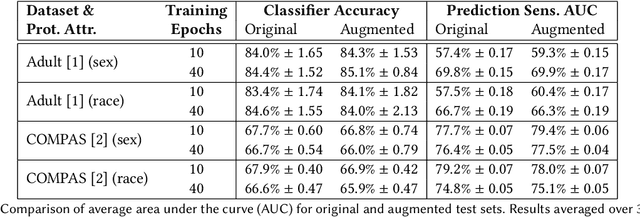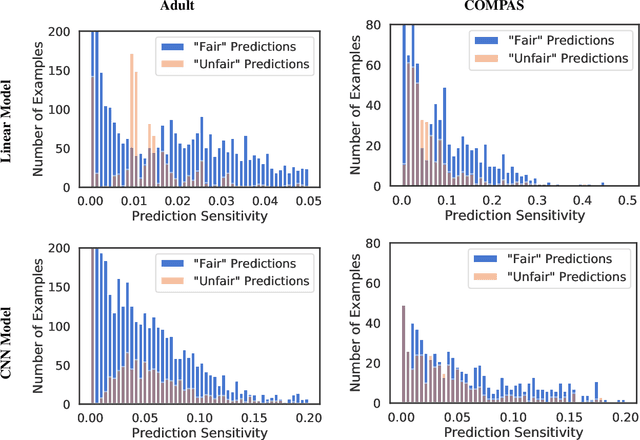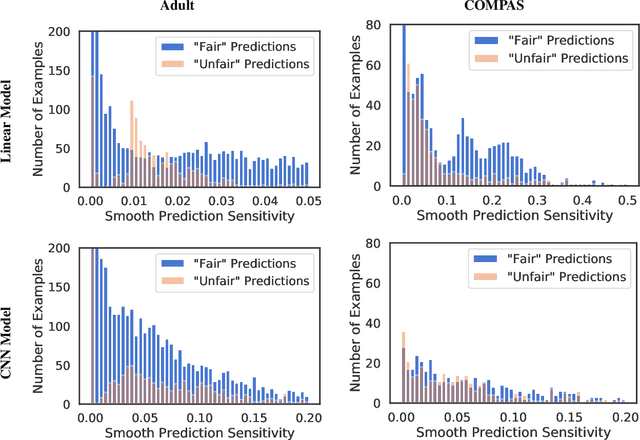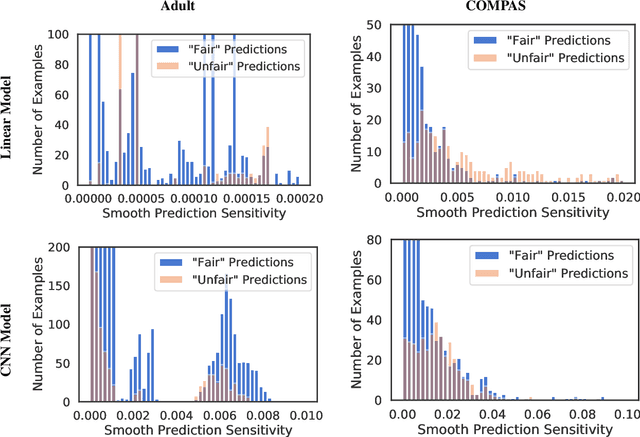Ivoline C. Ngong
Backpropagation Clipping for Deep Learning with Differential Privacy
Feb 17, 2022Abstract:We present backpropagation clipping, a novel variant of differentially private stochastic gradient descent (DP-SGD) for privacy-preserving deep learning. Our approach clips each trainable layer's inputs (during the forward pass) and its upstream gradients (during the backward pass) to ensure bounded global sensitivity for the layer's gradient; this combination replaces the gradient clipping step in existing DP-SGD variants. Our approach is simple to implement in existing deep learning frameworks. The results of our empirical evaluation demonstrate that backpropagation clipping provides higher accuracy at lower values for the privacy parameter $\epsilon$ compared to previous work. We achieve 98.7% accuracy for MNIST with $\epsilon = 0.07$ and 74% accuracy for CIFAR-10 with $\epsilon = 3.64$.
Prediction Sensitivity: Continual Audit of Counterfactual Fairness in Deployed Classifiers
Feb 09, 2022



Abstract:As AI-based systems increasingly impact many areas of our lives, auditing these systems for fairness is an increasingly high-stakes problem. Traditional group fairness metrics can miss discrimination against individuals and are difficult to apply after deployment. Counterfactual fairness describes an individualized notion of fairness but is even more challenging to evaluate after deployment. We present prediction sensitivity, an approach for continual audit of counterfactual fairness in deployed classifiers. Prediction sensitivity helps answer the question: would this prediction have been different, if this individual had belonged to a different demographic group -- for every prediction made by the deployed model. Prediction sensitivity can leverage correlations between protected status and other features and does not require protected status information at prediction time. Our empirical results demonstrate that prediction sensitivity is effective for detecting violations of counterfactual fairness.
Towards Auditability for Fairness in Deep Learning
Nov 30, 2020



Abstract:Group fairness metrics can detect when a deep learning model behaves differently for advantaged and disadvantaged groups, but even models that score well on these metrics can make blatantly unfair predictions. We present smooth prediction sensitivity, an efficiently computed measure of individual fairness for deep learning models that is inspired by ideas from interpretability in deep learning. smooth prediction sensitivity allows individual predictions to be audited for fairness. We present preliminary experimental results suggesting that smooth prediction sensitivity can help distinguish between fair and unfair predictions, and that it may be helpful in detecting blatantly unfair predictions from "group-fair" models.
 Add to Chrome
Add to Chrome Add to Firefox
Add to Firefox Add to Edge
Add to Edge